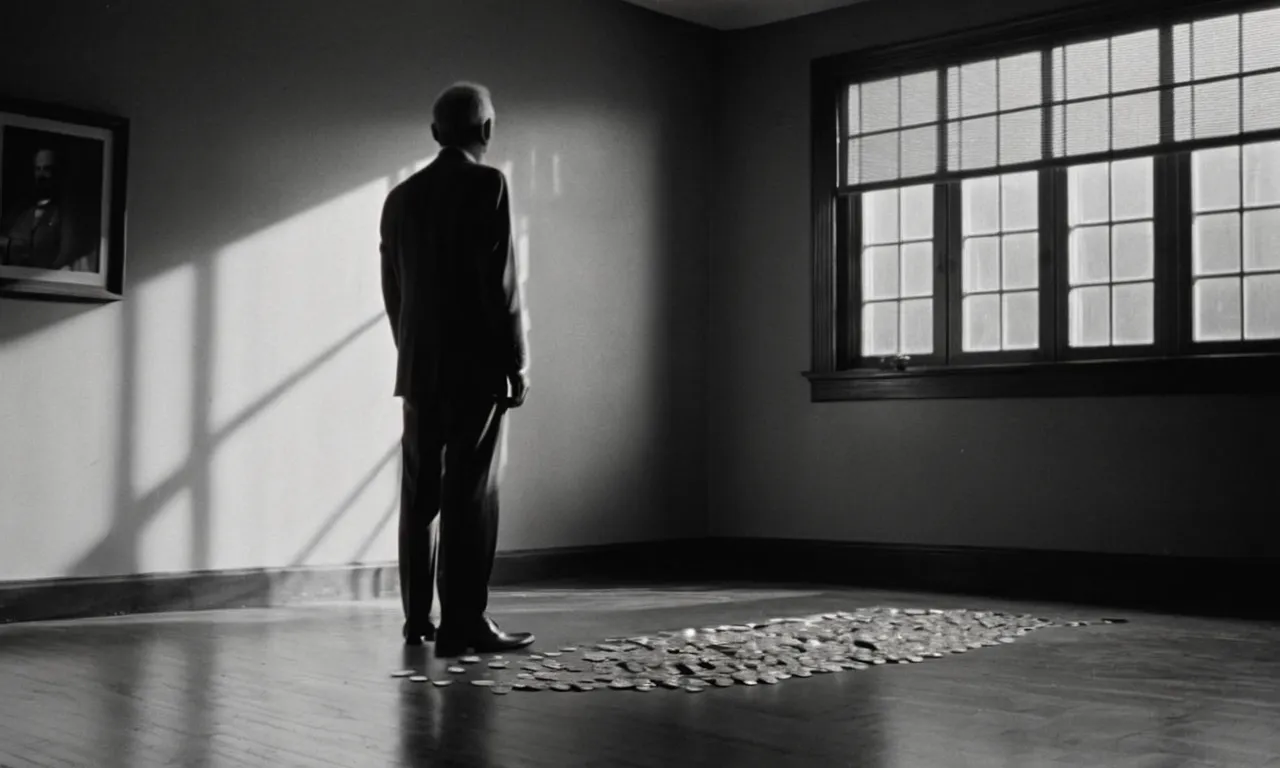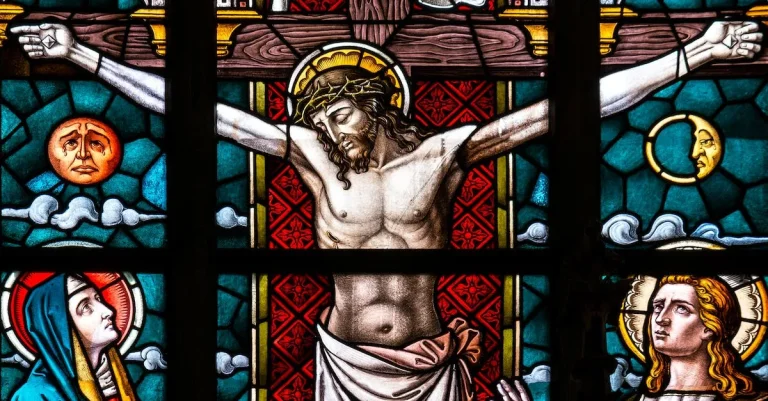What Did Jesus Say To Judas? A Comprehensive Look At Their Interactions
The relationship between Jesus and Judas Iscariot has fascinated Christians for centuries. Judas, one of the original twelve disciples, ultimately betrayed Jesus which led to his crucifixion. This betrayal has cemented Judas as a reviled figure in Christian history.
If you’re short on time, here’s a quick answer to your question: According to the Bible, there are very few direct interactions recorded between Jesus and Judas. Jesus appointed Judas as a disciple and Jesus predicted at the Last Supper that Judas would betray him.
When Judas came to arrest Jesus at Gethsemane, Jesus said ‘Friend, do what you came for.’
In this comprehensive article, we will examine the biblical accounts of every recorded interaction between Jesus and Judas. We will look at the relevant passages in the Gospels that shed light on their relationship and analyze what Jesus said directly to Judas.
Jesus Appoints Judas as a Disciple
The Calling of the Twelve Disciples
According to the Synoptic Gospels, early in His ministry Jesus personally called twelve men to be His closest followers and disciples (Matthew 10:1-4, Mark 3:13-19, Luke 6:12-16). These twelve disciples included the brothers Peter and Andrew, James and John the sons of Zebedee, Philip, Bartholomew, Matthew the tax collector, Thomas, James the son of Alphaeus, Simon the Zealot, Thaddaeus, and Judas Iscariot.
Jesus spent significant time teaching, mentoring, commissioning, and empowering the twelve disciples over the course of His three-year ministry. He sent them out to preach the gospel, heal the sick, and cast out demons in His name (Matthew 10, Luke 9).
The twelve got to witness Jesus’ miracles and hear His revolutionary teachings up close. They accompanied Jesus during momentous events like the Transfiguration (Matthew 17:1-8) and the Last Supper (Matthew 26:20).
The calling of the Twelve was important groundwork that Jesus laid for the establishment of the early Christian church after His crucifixion and resurrection.
Jesus’ Knowledge of Judas’ Future Betrayal
The Gospels record that Jesus had supernatural knowledge of Judas’ future betrayal even as He called Judas as one of the twelve disciples. After Jesus had spent an entire night in solitary prayer before selecting the Twelve, the text says, “Jesus called his disciples to him and chose twelve of them, whom he also designated apostles.
One of them was Judas Iscariot who later betrayed him” (Luke 6:12,16). John’s Gospel also says that Jesus explicitly knew “from the beginning” that it was Judas who would eventually betray Him (John 6:64).
This begs the question: If Jesus supernaturally foresaw Judas’ betrayal, why would He appoint Judas as a disciple in the first place? Various bible scholars have proposed three main theories to explain Jesus’ motivation in selecting Judas as one of the twelve:
There has been much debate amongst Christian scholars about Jesus’ motivations in selecting Judas as a disciple despite foreknowledge of his betrayal. However, all three explanations serve to highlight important biblical themes of prophecy fulfillment, God’s grace, and Jesus’ sovereignty over history.
Jesus Predicts His Betrayal at the Last Supper
Jesus Foretells His Betrayal
As Jesus gathered with his disciples for the Last Supper, he made a startling prediction – one of his own followers would betray him. Though Jesus knew this had to happen to fulfill prophecy, it was still tremendously painful for him to contemplate.
In an act of grace, Jesus gave Judas a chance to turn from his intended treason, saying “Woe to that man who betrays the Son of Man! It would be better for him if he had not been born.” Still, Judas resisted the chance to repent.
Jesus Indicates Judas as the Betrayer
When the disciples asked Jesus who would betray him, he solemnly answered “It is the one to whom I will give this piece of bread when I have dipped it in the dish.” After dipping the piece of bread, he gave it to Judas.
By engaging in this symbolic action, Jesus made it clear to Judas that he knew the intentions of his heart. Still, rather than leading Judas to repentance, this seemed to cement Judas’ resolve. He left quickly to make arrangements for Jesus’ capture and condemnation.
Though Jesus knew Judas’ betrayal was necessary, his heart broke with compassion over the man who would deliver him to his suffering and death. Even at this late hour, Jesus gave Judas one last chance to turn back. Tragically, Judas refused grace and instead pursued his evil plan.
Judas Leads the Arrest of Jesus in Gethsemane
The Prayer in the Garden of Gethsemane
After the Last Supper, Jesus went with his disciples to the Garden of Gethsemane to pray. As described in the Gospel accounts, Jesus was deeply troubled and asked his Father to take the cup of suffering away from him. However, he submitted to God’s will (Luke 22:42).
The disciples, including Judas, were present as Jesus fervently prayed in agony. Judas knew the garden’s location and that Jesus often prayed there, making it the perfect place to betray him.
Judas’ Kiss and Jesus’ Response
Judas led a detachment of soldiers and officers from the chief priests and Pharisees to arrest Jesus in the garden (John 18:3). As a disciple, Judas knew Jesus and identified him to the soldiers with a kiss, the common greeting between a rabbi and his disciple.
When confronted, Jesus responded calmly, asking who they were seeking and identifying himself with the divine name “I am” (John 18:4-8). This display of power caused the mob to draw back initially. However, Jesus willingly gave himself up, knowing that this was part of God’s divine plan from Scripture.
Jesus did not lash out at Judas but instead reacted with grace and dignity. Even when Peter drew a sword and struck the high priest’s servant, Jesus healed the man, demonstrating miraculous mercy (Luke 22:50-51).
He voluntarily laid down his life for the sins of the world, pardoning even those who crucified him (Luke 23:34).
Jesus’ Teachings Relevant to Judas’ Betrayal
Love Your Enemies
One of Jesus’ most well-known teachings that was relevant to Judas’ betrayal was his command to “love your enemies.” Jesus taught his followers not to retaliate against those who wrong them, but to love and pray for them instead (Matthew 5:43-48).
Even when being arrested shortly before his death, Jesus told Peter to put away his sword, saying “all who draw the sword will die by the sword” (Matthew 26:52). Jesus lived out this teaching by showing love and forgiveness even to Judas, who betrayed him.
Despite knowing ahead of time that Judas would betray him (John 13:11), Jesus continued to treat Judas as a friend, washing his feet (John 13:5) and giving him the honor of dipping his hand in the same bowl with him at the Last Supper (Mark 14:20).
Even when Judas arrived with soldiers to arrest him, Jesus called him “friend” (Matthew 26:50). This foreshadowed Jesus asking God to forgive those who crucified him, saying “Father, forgive them, for they do not know what they are doing” (Luke 23:34).
Woe to the One Who Betrays
While Jesus preached unconditional love and forgiveness, he did warn Judas and others about the dire consequences of betrayal. At the Last Supper, as Jesus predicted his betrayal, he said “woe to that man who betrays the Son of Man! It would be better for him if he had not been born” (Mark 14:21).
Though Jesus desired that none should perish (2 Peter 3:9), he knew that Judas’ fate would be bleak if he continued on the path of betrayal.
Jesus gave a similar warning earlier in his ministry about those who cause “little ones” in the faith to stumble, saying it would be better if they had a millstone hung around their neck and were drowned (Matthew 18:6).
Judas’ betrayal led to Jesus’ arrest and death, severely testing the faith of Jesus’ remaining 11 disciples. As one of Jesus’ original 12 disciples, Judas had been given the high privilege of learning from and serving alongside the Messiah.
Yet he tragically squandered that gift for 30 pieces of silver, leading to much “woe” for himself.
Conclusion
In conclusion, the words Jesus spoke directly to Judas were few but profoundly significant. Jesus appointed Judas as an apostle, foretold his betrayal at the Last Supper, and said ‘Friend, do what you came for’ when Judas arrived to arrest him.
While Jesus likely taught many things relevant to Judas’ choices, he did not condemn him directly. This comprehensive examination illuminates the complex biblical relationship between Jesus and his betrayer that continues to fascinate Christians today.








